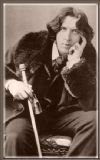|
ESL Forum:
Techniques and methods
in Language Teaching
Games, activities
and teaching ideas
Grammar and
Linguistics
Teaching material
Concerning
worksheets
Concerning
powerpoints
Concerning online
exercises
Make suggestions,
report errors
Ask for help
Message board
|
ESL forum >
Ask for help > has got vs has?
has got vs has?
|

lizsantiago

|
has got vs has?
|
|
hi everyone, i hope you are having a nice weekend. i �m here to ask about a doubt.. the thing is that i have downloaded quite a few ws relating to description and i noticed that when the member writes the model they write for example "she has got blue eyes" or she has got blonde hair" even though the sentence is in simple present like " she is 14yrs old" i have never seen that used, i have seen, at least in the us, this" she is 14 yrs old and has blue eyes" is the "has got " correct? is there a rule for that or are they both correct? any help with this will be gladly appreciated. |
20 Dec 2009
|
|
|
|

englishreader

|
Hi!
This is always a topic when I teach adults. Those who have learnt American English have never heard of �have got �. Those who have learnt British English know that for an English person the sentence �She has brown eyes � would not sound correct.
When the English talk about something someone posesses they ALWAYS use �have/has got �. The Americans on the other hand don �t!
I point this out to my learners and try not to be too stict when they forget the �got � (even though it sounds incorrect to me!!)
Hope that helps you!
|
20 Dec 2009
|
|
|

lizsantiago

|
|
ty very much it was driving me crazy and didn �t know if to fix the ws for my class or not use at all. |
20 Dec 2009
|
|
|

melahel7

|
|
That is an excellent question Liz and I don �t know why no one brought this up earlier. Both canadians and state-unians seldom use that form. I must say that I was annoyed with it at fisrt when I came across its massive use on the website. I realized then that the use of british had a stronger influence in european countries. Same thing with people introducing verb tenses in a supposedly formal form such as � �present simple � � or past simple � �. I �d rather use � �simple present � � or � �simple past � � coz that �s how I �ve been taught. Hope this helps. |
20 Dec 2009
|
|
|

Marijana

|
|
�I had a similar problem explaining this diference to my adult learners, for even though i was taught British English through out my education, I have actually learned English through movies and music, and i have an american accent which is kinda weird here in Serbia. Soooooooo, I looked it up. I �m not sure exactly which grammar i found it in (it might have been Murphy) but it said that "have got" is more colloquial, while "have" is more formal. Hope this helps. (it might have been Swan �s Practical English Usage)
�
|
20 Dec 2009
|
|
|

Spagman63

|
Those who have learnt American English have never heard of �have got �.
That �s because it sounds redundant to us. :) If you have something you obviously have got it. It �s like saying "I have have.."
|
20 Dec 2009
|
|
|

carinaluc

|
|
I usually teach the differences in form and usage between �have � and �have got � at school; our textbook is �New Headway Elementary � by John and Liz Soars and this is introduced in lesson 10. As Marijana points out, �have � is considered more formal than �have got �. As regards form, that �s when my students start having problems because they tend to mix both forms. Anyway, it �s British English. If I were you, I �d certainly use the wss, just edit them (I mean the ones that can be edited!). I do it all the time when there is a terrific ws in American English. It takes some time to change the spelling, the vocabulary and some verb tenses, but as long as it �s a good ws I don �t mind investing a little time in editing it. |
20 Dec 2009
|
|
|

Samantha.esl

|
This is an interesting question!..
I always come across this confusion in my students.. but I simply explain that one is american and the other is British.
BrE AmE
*She has got green eyes. *She has green eyes.
*Has she got green eyes? vs. *Does she have green eyes?
*She hasn �t got green eyes. *She hasn �t green eyes.
Sam
|
20 Dec 2009
|
|
|

aquarius_gr

|
|
Yes, big problem for some students. Also the "She hasn�t green eyes" error! grrrrrr
|
20 Dec 2009
|
|
|

eslgalaxy

|
Well I disagree with those who say it sounds redundant. To me using both at different times makes perfect sense. To those who want to find logic behind every expression in a language , I will say go and teach maths or math (whichever one you use). To me using "have got" suggests a stronger possession than "have".
We have often noticed that when an expression sounds repetitive it is usually for emphasis and completeness and not necessarily a redundancy. Branding it "Redundant British English" is not the way forward. There are more complex grammar points ahead when your students start learning things like the past perfect and other perfect tenses which do not make sense to most Americans. At that point are you going to brand it redundant again?
If you have studied other languages you will find that it isn �t always about logic.
Anyway back to the question of Have vs. Have got. I found a perfect explanation from the British council which I have pasted below.
The verb have, among other functions, can be used
to speak about possession, relationships and other states, and also to
talk about actions and experiences.
When have is used to speak about possession, relationships and other states, it is possible to use both have and have got:
 |
 |
 |
I have a house in the country. |
 |
 |
 |
I have got a house in the country. |
 |
 |
 |
I don�t have any brothers or sisters. |
 |
 |
 |
I haven�t got any brothers or sisters. |
 |
 |
 |
Do you have a cold? |
 |
 |
 |
Have you got a cold? |
When have is used to talk about actions and experiences, have got is NOT possible:
 |
 |
 |
She is having a shower at the moment (NOT She is having got a shower at the moment) |
 |
 |
 |
We are going to have a party next month (NOT We are going to have got a party next month) |
 |
 |
 |
They had an argument (NOT They had got an argument) |
In practice, then, it is always possible to use have (without got), so if in doubt, you should use this structure.
|
21 Dec 2009
|
|
|